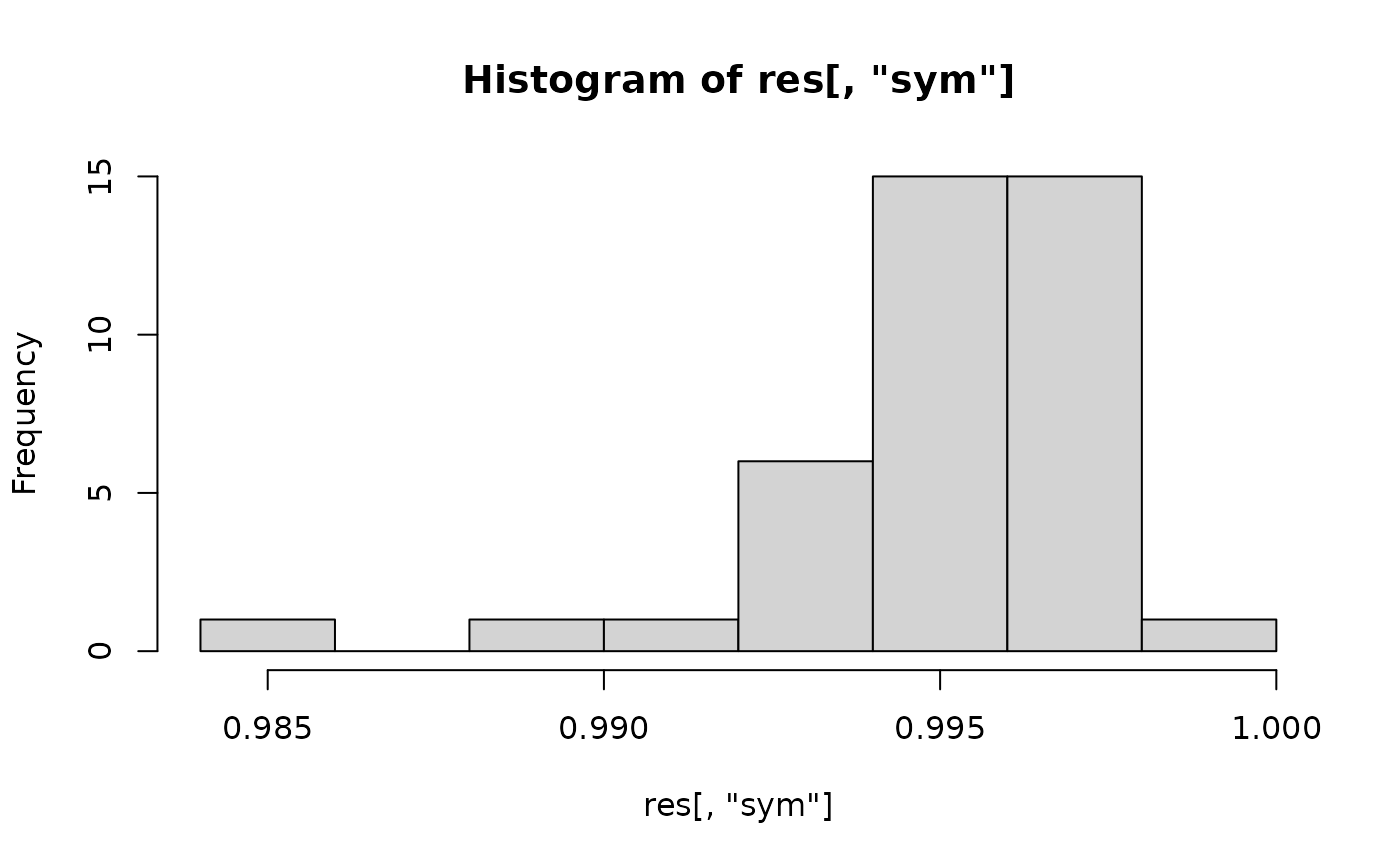For OutCoe objects obtained with efourier, calculates several
indices on the matrix of coefficients: AD, the sum of absolute values of
harmonic coefficients A and D; BC same thing for B and C; amp the
sum of the absolute value of all harmonic coefficients and sym which is the ratio
of AD over amp. See references below for more details.
Arguments
- OutCoe
efourier objects
Note
What we call symmetry here is bilateral symmetry. By comparing coefficients resulting from efourier, with AD responsible for amplitude of the Fourier functions, and BC for their phase, it results in the plane and for fitted/reconstructed shapes that symmetry. As long as your shapes are aligned along their bilateral symmetry axis, you can use the approach coined by Iwata et al., and here implemented in Momocs.
References
Below: the first mention, and two applications.
Iwata, H., Niikura, S., Matsuura, S., Takano, Y., & Ukai, Y. (1998). Evaluation of variation of root shape of Japanese radish (Raphanus sativus L.) based on image analysis using elliptic Fourier descriptors. Euphytica, 102, 143-149.
Iwata, H., Nesumi, H., Ninomiya, S., Takano, Y., & Ukai, Y. (2002). The Evaluation of Genotype x Environment Interactions of Citrus Leaf Morphology Using Image Analysis and Elliptic Fourier Descriptors. Breeding Science, 52(2), 89-94. doi:10.1270/jsbbs.52.89
Yoshioka, Y., Iwata, H., Ohsawa, R., & Ninomiya, S. (2004). Analysis of petal shape variation of Primula sieboldii by elliptic fourier descriptors and principal component analysis. Annals of Botany, 94(5), 657-64. doi:10.1093/aob/mch190

